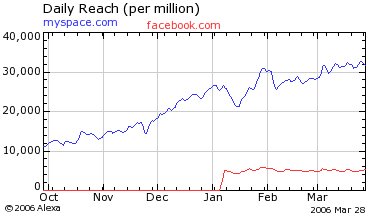Facebook, once just a college dorm project, has evolved into an undeniable global phenomenon. With its immense user base and dominating presence in the social media landscape, it’s no wonder that investors are eyeing Facebook stocks as a potential investment opportunity.
In this article, we will explore the rise of Facebook, analyze its financial performance, understand the risks involved, assess its revenue streams, delve into key metrics to consider before investing, examine the impact of COVID-19 on Facebook stocks, outline steps to buy Facebook stocks, discuss long-term prospects for the company, and conclude with final thoughts on its potential for long-term growth.
The Rise of Facebook: A Tech Giant’s Journey
From a college dorm project to a global phenomenon, Facebook’s journey is an extraordinary tale of innovation and success. Mark Zuckerberg’s visionary leadership propelled the platform from its humble beginnings to become one of the most influential companies in the world.
Key milestones, strategic decisions, and groundbreaking product launches have contributed to Facebook’s exponential growth and transformed the way we connect and communicate with each other. As a global tech giant, Facebook continues to shape our digital landscape and empower individuals worldwide.
Why Invest in Facebook Stocks?
Facebook’s dominance in the digital advertising market and its impressive financial performance make it an appealing investment opportunity. With a vast user base, sophisticated targeting capabilities, and a comprehensive suite of advertising products, Facebook holds a competitive advantage over others in the industry.
The company’s consistent revenue growth, profitability ratios, and strong cash flow generation further contribute to its potential for sustained success. Investing in Facebook stocks allows investors to tap into a thriving business that continues to shape the future of social media and online advertising.
Understanding the Risks Involved
Facebook’s dominance in the tech industry comes with inherent risks that investors should be aware of. Regulatory challenges and privacy concerns are two key factors that can significantly impact Facebook’s stocks and overall performance.
Regulatory challenges have become increasingly prevalent for tech giants like Facebook. Governments around the world are scrutinizing social media platforms more closely, leading to potential new regulations on data protection and user privacy.
These regulatory changes can increase compliance costs, lead to legal battles, and affect Facebook’s reputation and financial stability.
Privacy concerns have also been a consistent topic of discussion when it comes to social media platforms, including Facebook. Users’ trust is crucial for user engagement and revenue generation. Any perceived mishandling of user data or breaches of privacy rights can result in reduced user participation and advertising revenue for Facebook.
Investors need to carefully consider these potential regulatory risks and privacy concerns when evaluating their investment options in Facebook stocks. Being aware of the evolving regulatory landscape and understanding the impact of privacy issues on user engagement is crucial for making informed investment decisions.
In summary, regulatory challenges and privacy concerns pose significant risks to Facebook’s stocks. By staying informed about these risks, investors can make more informed decisions regarding their investments in this tech giant.
Assessing Facebook’s Revenue Streams
Facebook relies heavily on advertising revenue as a significant portion of its income. The platform’s extensive user base and advanced targeting capabilities attract advertisers, contributing to the company’s financial health.
To ensure long-term sustainability, Facebook has also diversified its revenue streams through acquisitions like Oculus and WhatsApp. These strategic moves allow the company to explore new opportunities in areas such as virtual reality and messaging apps, opening up potential sources of income beyond traditional advertising.
By continuously adapting to changing advertising trends and expanding into innovative sectors, Facebook aims to maintain its financial stability and dominance in the digital landscape.
Key Metrics to Consider Before Investing
When evaluating an investment opportunity in Facebook, it is crucial to analyze key metrics that indicate long-term success and financial performance. These metrics include monthly active users (MAUs), daily active users (DAUs), average revenue per user (ARPU), price-earnings ratio (P/E ratio), earnings per share (EPS), and revenue per user.
MAUs and DAUs demonstrate the platform’s growth and user engagement, while ARPU indicates its monetization potential. P/E ratio helps assess valuation, EPS measures profitability, and revenue per user evaluates revenue generation.
By considering these metrics, investors can gain valuable insights into Facebook’s trajectory and make informed decisions.
| Key Metrics | Significance |
|---|---|
| Monthly Active Users (MAUs) | Number of unique individuals using the platform within a month |
| Daily Active Users (DAUs) | Number of individuals interacting with Facebook on a daily basis |
| Average Revenue per User | Revenue generated from each individual user or customer |
| Price-Earnings Ratio (P/E) | Compares stock price with earnings per share (EPS) to assess valuation |
| Earnings per Share (EPS) | Profitability measure by dividing net income by outstanding shares |
| Revenue per User | Evaluates how much revenue a company generates from each individual user or customer |
Analyzing these metrics provides comprehensive insights into Facebook’s growth potential, financial health, and investment worthiness.
The Impact of COVID-19 on Facebook Stocks
The COVID-19 pandemic had a profound impact on Facebook’s stocks, primarily driven by changes in social media usage patterns and advertising spending trends.
During the pandemic, as people worldwide faced lockdowns and social distancing measures, there was a significant increase in digital interactions. Facebook experienced a surge in user engagement as individuals sought connection, information sharing, and entertainment within their homes.
However, advertising spending took a hit as businesses grappled with economic uncertainties. Many companies faced financial constraints due to shutdowns or reduced operations, leading to slashed advertising budgets across various industries.
Despite these challenges, Facebook demonstrated resilience by swiftly adapting to changing circumstances. The platform introduced new ad formats that catered to shifting consumer behavior patterns during the pandemic. Additionally, it provided businesses with tools and resources to navigate through the crisis successfully.
In summary, the COVID-19 pandemic presented both challenges and opportunities for Facebook stocks. Increased social media usage highlighted the platform’s significance in connecting people during difficult times.
While the decline in advertising spending posed potential risks, Facebook’s ability to adapt and support businesses positioned it favorably for navigating future uncertainties.
Steps to Buy Facebook Stocks
Investing in Facebook stocks requires careful consideration and strategy. Here are the key steps to follow when purchasing shares:
-
Find a reliable brokerage platform: Research and choose a reputable brokerage platform that suits your needs and offers access to Facebook stocks.
-
Understand different order types: Familiarize yourself with market orders and limit orders to execute trades effectively.
-
Set up an investment budget and strategy: Determine how much you can comfortably invest and develop an appropriate investment strategy aligned with your financial goals.
-
Conduct research and analysis: Stay informed about Facebook as a company, analyzing its financial statements, reports, and industry trends to make informed decisions.
-
Monitor performance and make adjustments: Regularly track the performance of your Facebook stocks, staying updated on market trends and adjusting your strategy if necessary.
Remember to diversify your portfolio and seek guidance from financial advisors when needed. By following these steps, you can navigate the process of buying Facebook stocks successfully.
Long-Term Prospects for Facebook Stocks
Facebook’s long-term growth prospects are bolstered by its investments in emerging technologies like virtual reality (VR). By integrating VR into its platform, Facebook aims to enhance user engagement and drive revenue growth.
Additionally, the company’s initiatives in developing countries provide significant opportunities for expansion, tapping into untapped user bases and diversifying revenue streams. Analyzing these factors is crucial when evaluating the future potential of Facebook stocks.
With a focus on innovation and strategic market adaptations, Facebook positions itself for sustained success in the digital landscape.
[lyte id=’X34YyCXw32E’]







